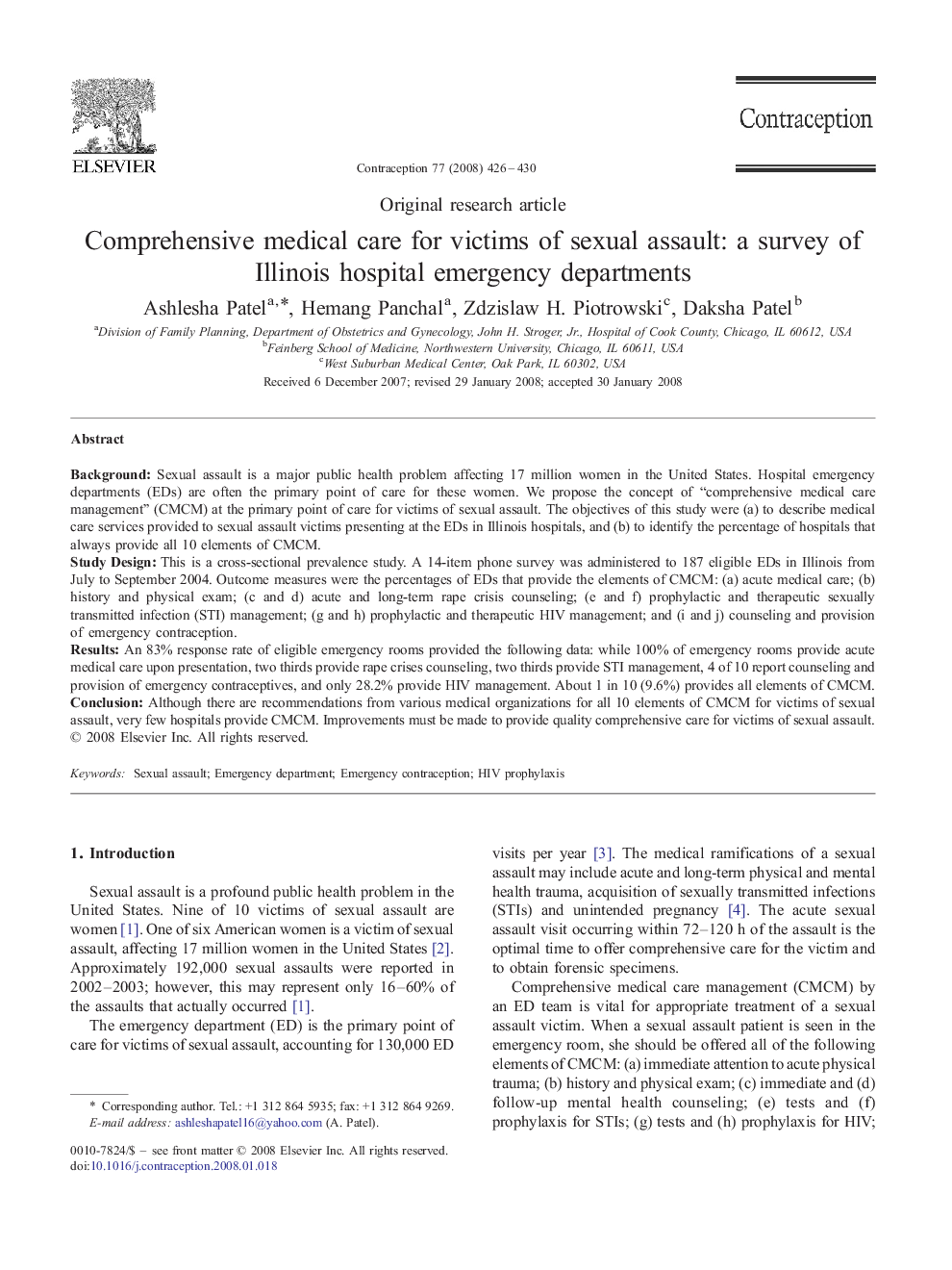| Article ID | Journal | Published Year | Pages | File Type |
|---|---|---|---|---|
| 3915445 | Contraception | 2008 | 5 Pages |
BackgroundSexual assault is a major public health problem affecting 17 million women in the United States. Hospital emergency departments (EDs) are often the primary point of care for these women. We propose the concept of “comprehensive medical care management” (CMCM) at the primary point of care for victims of sexual assault. The objectives of this study were (a) to describe medical care services provided to sexual assault victims presenting at the EDs in Illinois hospitals, and (b) to identify the percentage of hospitals that always provide all 10 elements of CMCM.Study DesignThis is a cross-sectional prevalence study. A 14-item phone survey was administered to 187 eligible EDs in Illinois from July to September 2004. Outcome measures were the percentages of EDs that provide the elements of CMCM: (a) acute medical care; (b) history and physical exam; (c and d) acute and long-term rape crisis counseling; (e and f) prophylactic and therapeutic sexually transmitted infection (STI) management; (g and h) prophylactic and therapeutic HIV management; and (i and j) counseling and provision of emergency contraception.ResultsAn 83% response rate of eligible emergency rooms provided the following data: while 100% of emergency rooms provide acute medical care upon presentation, two thirds provide rape crises counseling, two thirds provide STI management, 4 of 10 report counseling and provision of emergency contraceptives, and only 28.2% provide HIV management. About 1 in 10 (9.6%) provides all elements of CMCM.ConclusionAlthough there are recommendations from various medical organizations for all 10 elements of CMCM for victims of sexual assault, very few hospitals provide CMCM. Improvements must be made to provide quality comprehensive care for victims of sexual assault.
